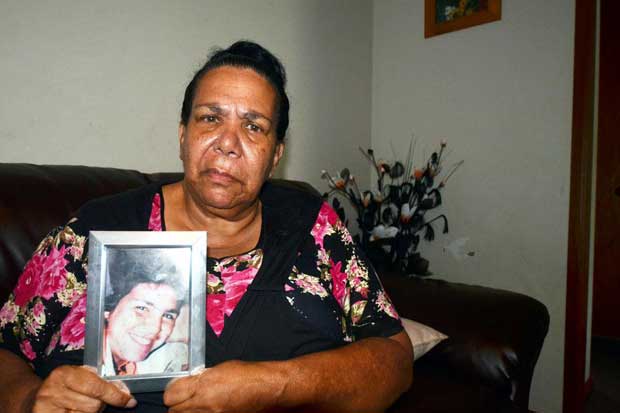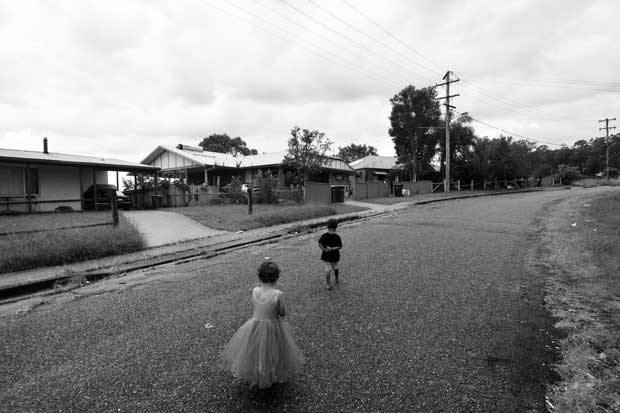The families of three Aboriginal children murdered on the NSW mid north coast two decades ago are calling for the state government to remove an “artificial” legal barrier seen as the last roadblock to getting the accused killer before court.
Draft amendments to the Crimes (Appeal and Review) Act 2001 which clarify the legal term ‘adduced’ or ‘admitted’ have been released for consultation by Greens MLA David Shoebridge. The amendments will help clear the way for the application to be sent back to the Court of Criminal Appeal – seen as the last avenue to get the only man accused of the three murders back on the stand.
But one family spokesperson says the long wait for justice has been “frustrated” by the refusal of yet another state Attorney General – Brad Hazzard – to meet with members of the families, who still struggle in the face of a two-decade long injustice.
In 1990-1991, Colleen Walker Craig, 16, Evelyn Greenup, 4, and Clinton Speedy Duroux, 16, all went missing in the space of a few months from the same stretch of road that runs through the Bowraville mission.
The original police investigation was botched, with child protection authorities sent in, key evidence given back to the accused, and the concerns of the local Aboriginal community disregarded. The investigation and ensuing legal fight was hindered by racism, a claim confirmed by the detective who spearheaded the second investigation in 1997 – Detective Inspector Gary Jubelin.
Despite the similarities linking the cases, the three murders have never been heard in one trial. The only man accused of these crimes – a non-Indigenous man – was acquitted of both Clinton and Evelyn’s murder in two separate trials. Colleen has never been found and her family still search tirelessly for her body.

In 1993, a Supreme Court judge ruled against linking the trials of Clinton and Evelyn, meaning key evidence was omitted. The families have consistently maintained that the three trials should have been combined into one, because of the striking similarities between the cases.
Mr Shoebridge says “running the three trials together, with what the Evidence Act 1995 terms ‘tendency and coincidence reasoning’, would considerably strengthen the prosecution case.
“This type of evidence was used to convict serial murderer Ivan Milat for seven joined murder charges.”
In 2006, the families succeeded in having the state’s double jeopardy laws overturned – a potential world first.
But despite this, two state Attorney Generals have knocked back the families’ applications, which contain “fresh and compelling” evidence.
Former state Attorney General Greg Smith refused to send the evidence on, casting doubt on whether it was “fresh”. The evidence of one murder was tendered in the trial of another of the murders, but wasn’t ‘admitted’. The term ‘adduced’ is untested in NSW.
After Mr Smith refused to send the evidence back to the Court of Criminal Appeal, the families protested outside NSW Parliament House and achieved a small victory – a parliamentary inquiry into the family response into the murders.
While the terms of reference were narrow, the inquiry handed down a number of recommendations designed to deliver justice for the Bowraville families including a key recommendation to clarify the definition of ‘adduced’ in the Crimes (Appeal and Review) Act 2001.
Defining the term ‘adduced’ would help enable a re-trial where a change in law renders evidence admissible at a later date.
The recommendations were supported unanimously by members of the Legislative Council, who joined together in a rare show of bipartisanship, in an emotional day in Parliament last year.
But four months on, the NSW government has not delivered any response about whether it will act on the recommendations of the inquiry.
Last month, Mr Shoebridge launched a petition calling on all sides of politics to commit to the recommendations.
He is now calling on consultation for a draft amendment to open up the possibility of a re-trial.
“If ‘fresh’ evidence included evidence that was not and could not have been admitted into evidence (as opposed to tendered in court but rejected by the judge as inadmissible), it would remove a significant barrier to a retrial for the Bowraville murders. The tendency and coincidence evidence was not admissible under the old evidence law, and now could be, under the Evidence Act,” Mr Shoebridge says.
Clinton Speedy Duroux’s sister-in-law, Leonie Duroux has been a long time campaigner for the families. She told New Matilda the amendments were extremely important.
“It’s like our last roll of the dice. We need that legislation changed to get (the accused) into court. So we need it. It’s really important,” Ms Duroux told New Matilda.
The families have never given up hope, she said, but their concerns were frustrated by the refusal of successive state governments to take up their cause.
Attorney General Brad Hazzard has not responded to repeated requests for a meeting, Ms Duroux told New Matilda.
“I’ve sent out three or four times to the Attorney General Brad Hazzard asking for an offer to meet, and we can’t even get a response from him. I can confirm that he hasn’t signed the pledge,” Ms Duroux said.
“It’s a given that the Legislative Council is supporting us, but we also need the Legislative Assembly’s support.”

Mr Hazzard reportedly met informally with members of the families a long time ago before he was Attorney General. But Ms Duroux has doubts this meeting ever took place.
The only meeting the families have had with any politician was when the former Attorney General Greg Smith granted them a meeting at Parliament House.
In that meeting, Mr Smith told the families they had to ‘move on’, before referring to Clinton’s father Thomas by the accused killer’s name.
The families also briefly garnered the attention of Deputy Premier Andrew Stoner, whose electorate takes in Bowraville. During a protest outside parliament, Stoner publicly promised the families he would personally deliver the news of any government review of the case. The family subsequently never heard from Stoner.
A spokesperson for Mr Hazzard’s office told New Matilda the NSW government was considering the committee’s report.
The spokesperson said Aboriginal affairs minister Victor Dominello had visited Bowraville and the families in December.
“The NSW government has announced it will provide funding to install new memorials and plaques in Bowraville dedicated to the memory of the children. Existing memorials will also be upgraded.
“The NSW government is carefully considering the Committee’s report and will respond, as required, by May this year.”
But that is little consolation to the families, who have campaigned for more than two decades, despite experiencing continual setbacks.
“The hope is still there, that the government will not let the families down,” Ms Duroux says.
“They’ve been let down so many times and it just appears like the person that can make the main decision about the legislation is not interested in meeting with us.”
You can get more information about the draft amendments here.
Donate To New Matilda
New Matilda is a small, independent media outlet. We survive through reader contributions, and never losing a lawsuit. If you got something from this article, giving something back helps us to continue speaking truth to power. Every little bit counts.



